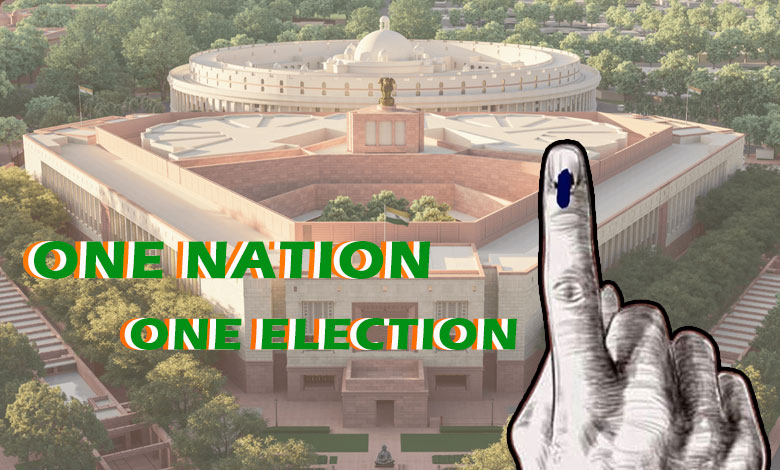One Nation, One Election: Joint Parliamentary Committee Holds First Meeting Today
"Explore the first meeting of the Joint Parliamentary Committee on 'One Nation, One Election' as it reviews key constitutional amendment bills aimed at synchronizing Lok Sabha and state Assembly elections for streamlined governance and reduced costs."

New Delhi: The Joint Parliamentary Committee (JPC) on “One Nation, One Election” is set to hold its inaugural meeting today to deliberate on the Constitution (One Hundred and Twenty-Ninth Amendment) Bill, 2024, and the Union Territories Laws (Amendment) Bill, 2024.
The primary objective of these bills is to synchronize Lok Sabha and state Assembly elections across India, a reform that could transform the country’s electoral landscape.
Table of Contents
Key Objectives of the JPC Meeting
The JPC, chaired by BJP leader P.P. Chaudhary, comprises 39 members, including 27 MPs from the Lok Sabha and 12 from the Rajya Sabha. The committee’s mandate includes:
- Reviewing the Feasibility: Assessing the practicality of simultaneous elections to the Lok Sabha and state Assemblies.
- Analyzing Implications: Evaluating the impact of synchronized elections on governance, administrative efficiency, and financial expenditure.
- Incorporating Union Territories: Exploring provisions for aligning elections in Union Territories, including Delhi, Puducherry, and Jammu and Kashmir, with national polls.
Officials from the Ministry of Law and Justice (Legislative Department) will brief the committee on the bills’ provisions during the meeting.
What Are the One Nation, One Election Bills?
The Constitution (129th Amendment) Bill, 2024, seeks to amend existing constitutional provisions to facilitate simultaneous elections. The Union Territories Laws (Amendment) Bill, 2024, aims to bring elections in Union Territories in sync with the Lok Sabha polls.
The bills were introduced in the Lok Sabha on December 17, 2024, by Law Minister Arjun Meghwal. Following a heated debate and a division of votes, the introduction was approved, with 269 MPs supporting the move and 198 opposing it. The bills were then referred to the JPC for detailed examination.
Members of the JPC
The JPC is a diverse body, representing a mix of ruling and opposition parties. Notable members include:
- BJP: Anurag Thakur, Sambit Patra, Anil Baluni, Vishnu Datt Sharma, and Bansuri Swaraj.
- Congress: Priyanka Gandhi Vadra and Manish Tewari.
- TMC: Kalyan Banerjee.
- Samajwadi Party: Dharmendra Yadav.
- NCP: Supriya Sule.
The involvement of leaders from across the political spectrum highlights the importance of building consensus on this landmark reform.
Government’s Stance on One Nation, One Election
The government argues that holding simultaneous elections will:
- Streamline Governance: Reduce the frequent imposition of the Model Code of Conduct, which often delays development projects.
- Lower Costs: Minimize election-related expenditures by conducting a single, synchronized electoral process.
- Enhance Voter Turnout: Encourage greater participation by reducing voter fatigue caused by frequent elections.
Also Read | Opposition Unites Against ‘One Nation, One Election’ Bill as Lok Sabha Adopts It
Concerns Raised by the Opposition
Opposition parties have voiced apprehensions, citing potential challenges:
- Impact on Federalism: Simultaneous elections may undermine the autonomy of state governments.
- Logistical Hurdles: Aligning election cycles across states with varying tenures poses significant challenges.
- Constitutional Questions: Amending the Constitution to implement such a reform requires thorough scrutiny to safeguard democratic principles.
Historical Context and Road Ahead
The concept of “One Nation, One Election” is not new. India held simultaneous elections to the Lok Sabha and state Assemblies until 1967. However, this practice was disrupted due to early dissolutions of some state Assemblies and the Lok Sabha.
The JPC’s findings and recommendations will be pivotal in determining the feasibility of reviving this practice. Its deliberations will address critical aspects such as constitutional amendments, logistical arrangements, and potential political consensus.
